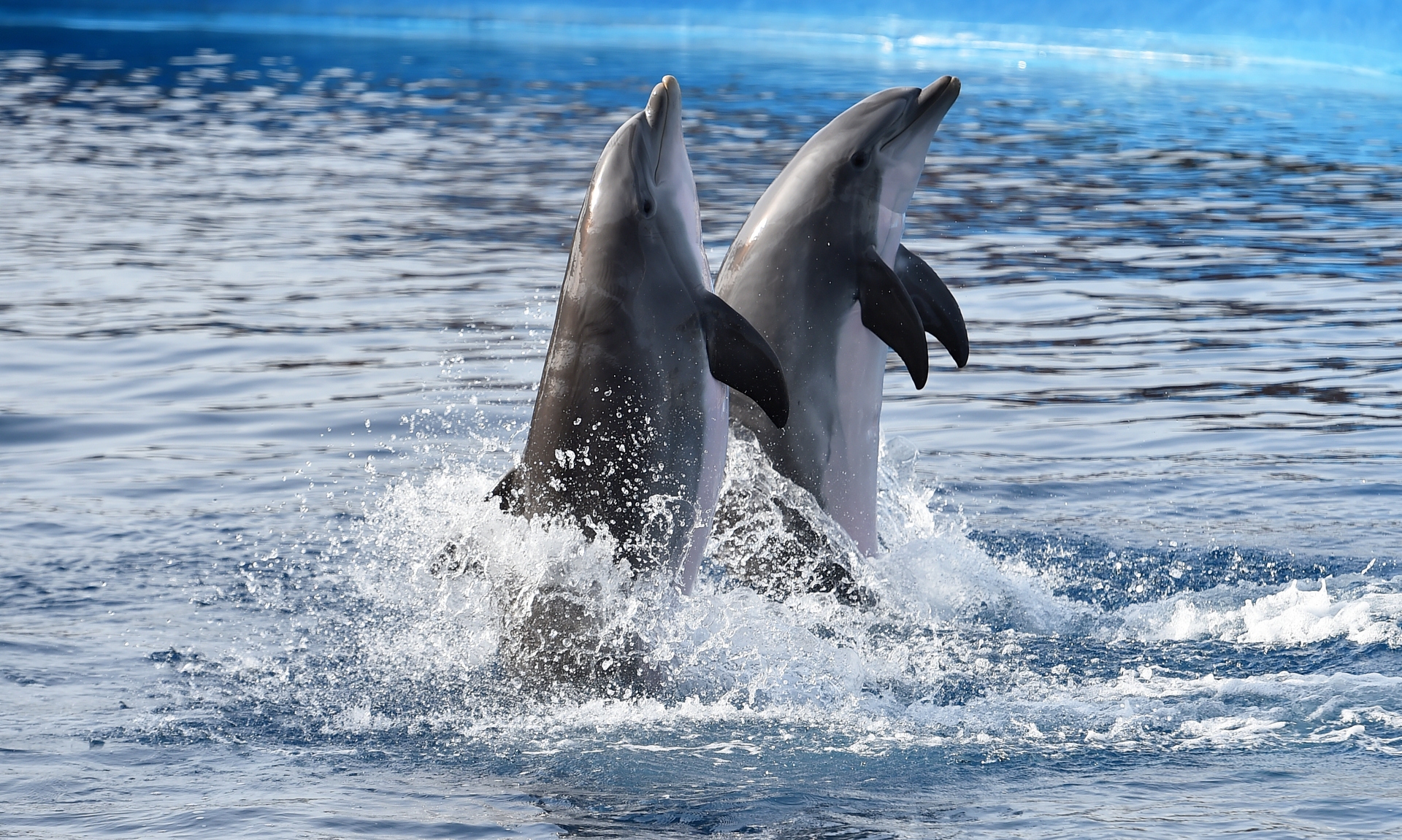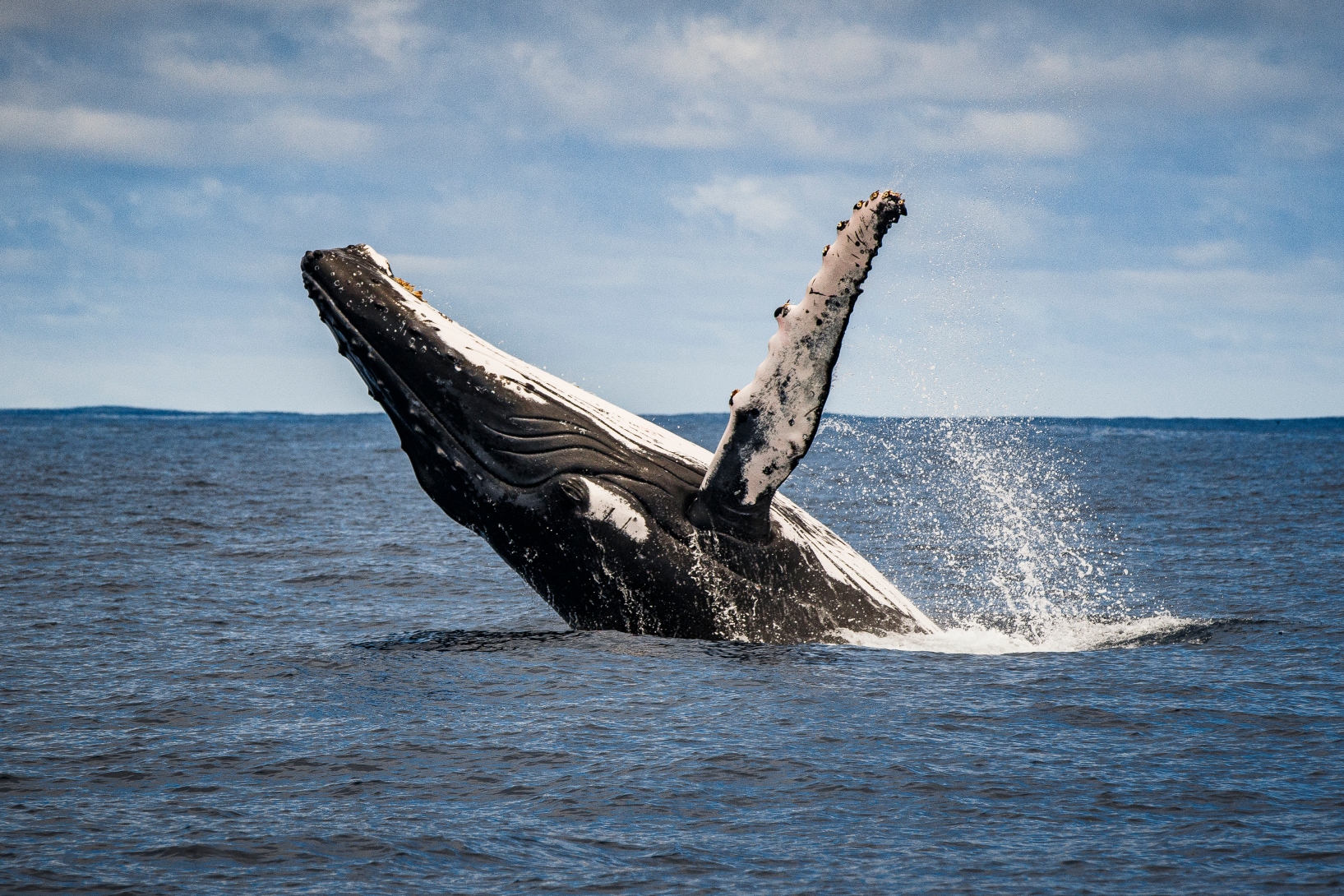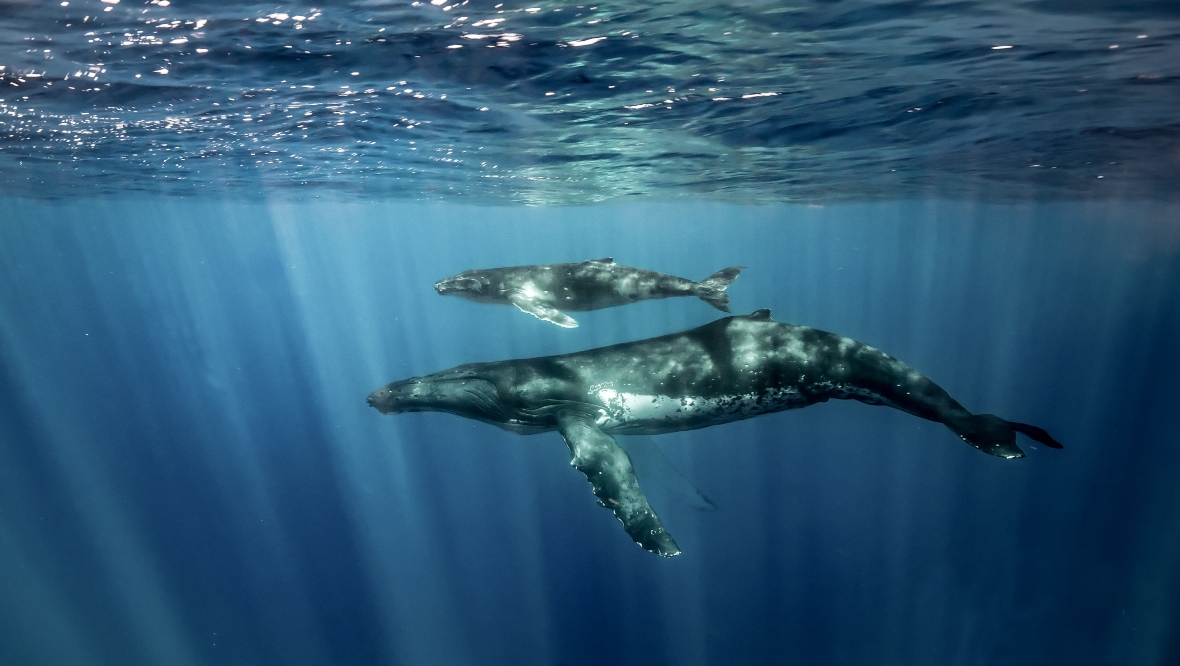Whale and dolphin songs have been recorded over a full year for the first time in Scottish waters.
Marine scientists captured the vast soundscape of the aquatic creatures in deep waters off the country’s west coast over the course of a year.
A research team led by the Oban-based Scottish Association for Marine Science (SAMS) placed underwater microphones between the Hebrides and the continental shelf edge between September 2020 and August 2021.
Known as “passive acoustic monitoring”, the microphones detected sounds from a range of marine mammals, including dolphins and fin, minke, humpback and sei whales.
Visual surveys are usually carried out inshore and during daylight hours in the summer months, so they cannot provide the full picture, SAMS said.
 iStock
iStockThe data collection is expected to pinpoint three main things: when migrating species arrive in Scottish waters, where they are spending their time, and how long they stay.
“At the moment, most of our predictive models on species distribution and population sizes are based on occasional sightings at sea,” explained Dr Nienke van Geel, a marine mammal expert at SAMS and lead author of the publication.
“We therefore have large seasonal and night time data gaps for marine mammals in Scottish waters and particularly in that offshore area from the Hebrides out to the continental shelf edge.”
This information is crucial to regulators and advisors, such as Marine Scotland, as it will inform placement and mitigation strategies for renewable energy developments and other human activity at sea.
It will also allow an assessment of how well populations are recovering since the end of whaling in the 1950s.
Dr van Geel continued: “This year-round acoustic data collection of what’s happening and when is extremely exciting, and gives the best indication yet of which species we have in our own waters.
 iStock
iStock“For example, we detected a lot of dolphin activity – their sounds were detected almost daily throughout the year at some sites. There was also more sei and humpback whale songs than we had expected.”
SAMS marine mammal ecologist and publication author Dr Denise Risch said continued funding for such acoustic monitoring would be crucial to provide long-term data to help measure changes in the aquatic environment.
She stated: “As the ocean warms, more species that are adapted to warmer water come north.
“For example, in recent years we’ve seen more common dolphins follow their prey as they migrate northwards.
“It will only take a couple more decades for there to be a different species composition in Scottish waters.
“This kind of data is valuable in explaining how a warming ocean is affecting the movement of cetaceans and their prey, but it is also the best way to find out whether certain species are recovering from the devastating effects of whaling and how we can protect them from current threats, such as entanglement in fishing gear and ocean noise.”
The findings were published on August 31 in the journal Frontiers in Remote Sensing: Frontiers | Monitoring cetacean occurrence and variability in ambient sound in Scottish offshore waters.
Follow STV News on WhatsApp
Scan the QR code on your mobile device for all the latest news from around the country


 iStock
iStock























